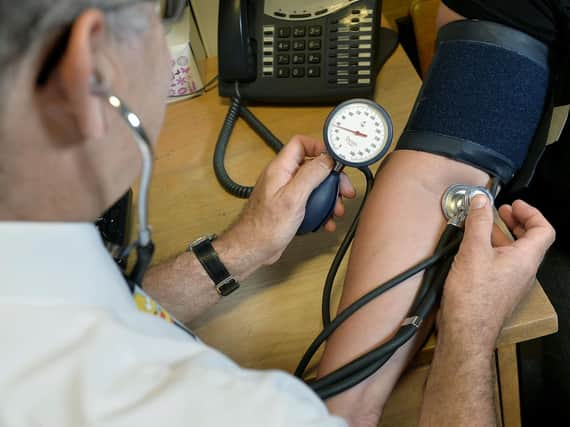GPs care just as much as ever, so please be patient - Dr Ben Allen


Over recent years the way to get help from general practice has changed significantly. However, these changes have not always been explained to patients.
Concerns expressed include patients not being seen face to face or allowed to request a GP. Many patients have felt confused, abandoned and angry. If the changes were made due to Covid, why is general practice not returning to business as usual?
As a GP, I will attempt to explain.
Advertisement
Hide AdAdvertisement
Hide AdIn the past, to see a GP all you had to do was ask. Now when you ring, a receptionist may ask you about your problem. You may be offered a phone call from a GP or help from a different professional. Many people think: “But I just want to see a GP!”Here is the background to the problem. Patients are living longer, with more medical problems and many more medications. The complexity of general practice has vastly increased. But the number of GPs has declined. General practice was overwhelmed for years before the pandemic added further strain.
One solution was to introduce new roles, such as nurse practitioners, pharmacists and physios. These professionals are highly skilled and knowledgeable in the areas in which they specialise.
The GP’s particular role is to manage patients with complex or multiple medical problems and to support the team. New services have also developed such as eye units and minor injuries units. So there are now lots of options.
If patients are allowed to choose whom they can see, GPs rapidly become fully booked. This often happens first come, first served, for example, “ring from 8.30am”.
Advertisement
Hide AdAdvertisement
Hide AdOne problem with this is that GPs will spend time with patients who could have been managed by other members of the team. And with the GP fully booked, the most complex patients have no one available to help them. An alternative to this is called “triage”. Triage is matching your problem to the most appropriate person to help.
The receptionist asks a bit about your problem and is trained to pass this on to the right person at the surgery. If a problem turns out to be more complicated than expected, we all have access to the expertise of the whole team.
Strict confidentiality is followed by all staff. This new way of working may feel uncomfortable. But using the whole team to meet the needs of all our patients is what matters most.
Why did this change during the pandemic and will it change back?
Advertisement
Hide AdAdvertisement
Hide AdMany surgeries used triage to help manage workload more effectively before the pandemic.
However, when Covid came along, every surgery had to move to triage to manage infection risks. The hidden benefit for these surgeries was that triage also enabled them to increase the total number of appointments.
With general practice close to breaking point, many surgeries will continue to work in this way. With triage, we can help more patients and prioritise those who need us most.
When will GPs start seeing people face to face?
Contrary to common belief, GPs have continued to work face to face throughout the pandemic. We triage patients to a face-to-face appointment where we judge that the benefits outweigh the risks.
Advertisement
Hide AdAdvertisement
Hide AdGoing forward, the amount of face-to-face appointments will continue to reflect the risks of Covid transmission. We are hopeful that both will improve. Most patients and health professionals prefer face-to-face appointments. At times they are needed medically and to build the relationship.
Many surgeries increased their use of telephones and internet during the pandemic. At times this can be effective and safe and also save time. If we want to provide quality care in an underfunded general practice, we are forced to make uncomfortable changes.
To help cope with the pressures, we will need to balance the need for face-to-face working with the efficiency of the alternatives.
Lastly there are frustrations that doors remain locked. Walking into surgeries last year, we had patients with Covid, patients without masks and vulnerable or unvaccinated patients.
Advertisement
Hide AdAdvertisement
Hide AdQueuing indoors was not safe. Surgeries introduced intercoms to manage this. As risks decrease, most surgeries will return to open doors. We know that changes in the services you rely on can make you feel neglected, insecure and vulnerable.
This is especially true about something as important as your health. General practice could have explained these changes better. Whilst appearing less visible, GPs are actually delivering more appointments than ever. Triaging patients to the most suitable person may feel restrictive, but it helps make sure your GP is available when you need them.
Achieving what’s expected of general practice, with the workforce we have, is now a near impossible task. We have never stopped caring deeply for our patients. These changes are because we want to ensure that you still get the care that you need.
